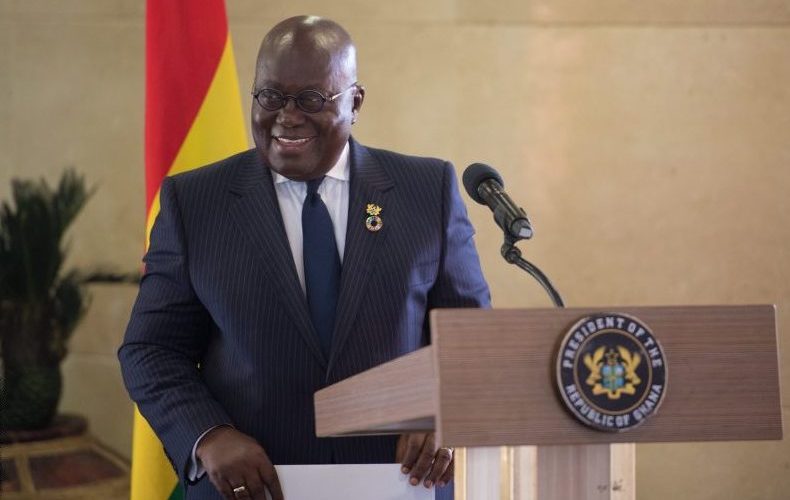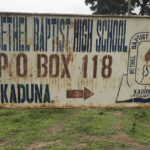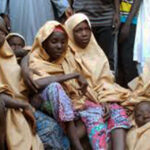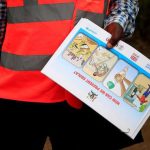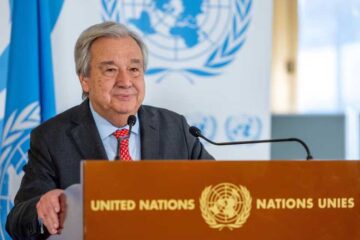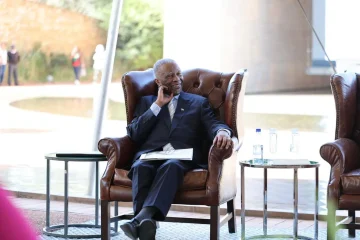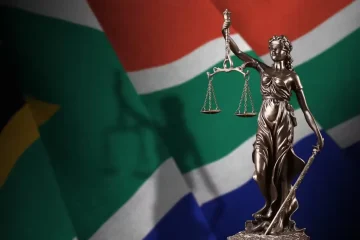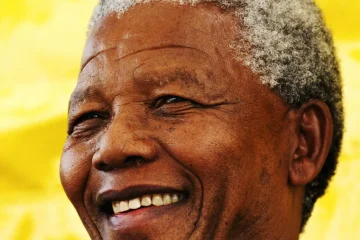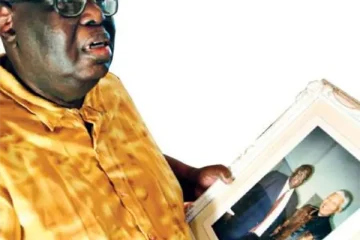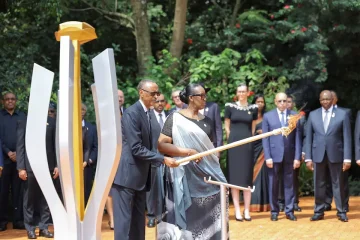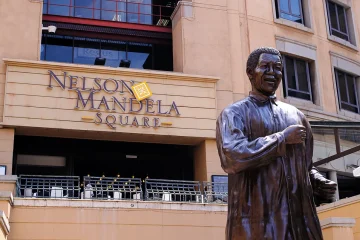NANA ADDO DANKWA AKUFO-ADDO
Two weeks ago, we began the reopening of our schools, as part of the phased approach to bring our nation back to normalcy, following the outbreak of the novel COVID-19 disease in our country. Since that time, final year University students, SHS 3 and SHS 2 Gold Track students have all returned to school.
Final year junior high school students, in 17,439 schools across the country, returned to school to prepare and sit for the Basic Education Certificate Examination (BECE). They were the final, and, indeed, the largest batch of students to return to school.
In all, some 750,000 persons, comprising 532,000 JHS 3 students, and 218,000 teaching and non-teaching staff, and invigilators, were involved in the exercise.
To protect the lives of these students, and all other personnel, the Government has put in place the relevant measures, in consultation with the Conference of Heads of Basic Schools and Regional and District Directors of Education and Health.
Like senior high schools, universities and other tertiary institutions, all junior high schools across the country have been fumigated and disinfected.
Additionally, we have procured and distributed 45,000 Veronica Buckets; 90,000 gallons of liquid soap; 90,000 rolls of tissue paper; 40,000 thermometer guns; 750,000 pieces of 200mils sanitizers; and 2.2 million reusable face masks, i.e. three per person, all with the intent of guaranteeing the safety of the students, teaching and non-teaching staff. Two masks each will be delivered tomorrow, and the third within the next two weeks.
I have been very impressed by the adherence to the enhanced hygiene and social distancing protocols by authorities and students in our universities and other tertiary institutions, and senior high schools. Yes, there have been a few hitches surrounding the re-opening, but, largely, they have been smooth and seamless.
In these institutions, the washing of hands under running water, the maintenance of social distancing, the refrain from shaking hands and hugging, and the wearing of masks, have become a part of the routine of school life.
We are determined to ensure the same level of conformity in our junior high schools. So, through the district directors of education and the district directors of health, a COVID-19 sensitisation programme will be organized for all headteachers and their teaching staff, the first day of school. This will ensure that the dos and don’ts of the protocols are clearly spelt out for the teachers for onward transmission to the students.
JHS 3 students will be in school for 11 weeks of preparation and revision, before spending the following week to take the BECE. There will be no more than 30 students in a class, and there will be a reduced school day, with students reporting to school at 9am, and closing at 1pm.
No breaks outside the classroom will be permitted; assemblies and sporting events are banned; and the use by outsiders of school premises for religious and other activities will not be allowed. As is the case for the other educational institutions, each basic school has been mapped to a health facility, and care will be provided to the sick in these health facilities by nurses assigned to these schools.
I assure all parents and guardians that the Government will not put the lives of 750,000 students, teachers and non- teaching staff, who will be returning to school, at risk. We have made all the required provisions to protect them whilst in school. It bears repeating, however, that they must all adhere strictly to enhanced personal hygiene and social distancing protocols, regularly wash their hands with soap under running water, refrain from shaking hands and hugging, and wear masks to protect themselves and others. Our survival, I repeat, is in our own hands, and, together, we can defeat this virus.
We all know that these are truly historic times. The world is reeling from the effects of this pandemic, and the things we took for granted, some 6 months ago, are now under question. The definite and undeniable have been replaced with uncertainty.
However, as with any other form of hardship, there are always lessons to be learned, as there are opportunities for growth. What we have witnessed, recently, is that, despite us living in an interconnected and globalised world, each nation, ultimately, stands alone in its challenge to protect its people.
Nonetheless, it is obvious that international cooperation, where feasible and practical, can serve to complement the resolution of national challenges.
In Ghana, from the very onset, the Government has acted to limit and stop the importation of the virus; contain its spread; provide adequate care for the sick; limit the impact of the virus on social and economic life; and inspire the expansion of our domestic capability and deepen our self-reliance.
As at June 27, our country has recorded 17,351 confirmed cases, with 12,994 recoveries, representing some 75% of positives. This means that, currently, we have 4,245 active cases, having conducted 294,867 tests, one of the highest on the continent. Thirty persons are severely and critically ill, and we have a total of 112 sad deaths, constituting 0.6% of positives, as we maintain one of the lowest death rates in the world.
As I have stated before, one of the key objects of our fight against COVID-19 has been to save lives, and reduce the number of deaths. The Ghana Health Service has observed that most of the patients that have been lost to the virus died either on arrival at the hospital, or within 48 hours after arrival. Unfortunately, we still have some persons in the country who are not taking the dangers associated with this disease seriously, and, therefore, do not seek medical help as soon as they have symptoms that suggest an infection of the virus.
There should be no fear of stigmatisation or embarrassment with being diagnosed with COVID-19. So, please, when you begin to experience symptoms such as fever, persistent cough, bodily pains, loss of taste and smell, and difficulty in breathing, seek immediate medical attention at the nearest health facility.
Most patients, who are critically ill and need intensive care, do, indeed, survive the virus, if they seek medical help promptly. For example, out of 53 patients admitted into intensive care units (ICU) at the Ga East Municipal Hospital and the University of Ghana Medical Centre, since the pandemic struck, 44, i.e. 83%, have fully recovered, and have been discharged.
This is, in part, due to the immense dedication and hard work being exhibited by our healthcare workers, who continue to care for those affected by the virus, and for the sick in general. In recognition of these efforts, I announced, during my fifth address to the nation, on April 5, an incentive package to motivate and express appreciation to all health workers for the months of April, May and June.
I am happy to announce that I have decided to extend the incentive package for health workers by another three months. This means that all health workers will pay no income taxes for the next three months, i.e. July, August and September. Again, all frontline health workers, as defined by the Ministry of Health, will continue to receive the additional allowance of 50% of their basic salary per month, i.e. for July, August and September.
I know the implementation of this directive for the months of April, May and June has been fraught with some challenges, caused, mainly, by the protracted discussions over the definition of who qualifies as “frontline health workers” in this context. I have, however, been assured that they have now been resolved, and payments will be effected from the end of June. I should reiterate that the insurance package for health workers is still in place.
Whilst we appreciate the efforts of our health workers, I continue to urge them to remain professional and compassionate. Every avoidable death, be it corona-related or not, is a tragedy.
Let us all be reminded, in our daily routines, that adhering to the enhanced social distancing and hygiene protocols will not only save our lives, but also prevent our healthcare infrastructure from being over-burdened.
Let us wash our hands with soap under running water, use alcohol-based sanitizers, maintain the protocols on social distancing, avoid person to person contact, eat our local foods that boost our immune systems, and, yes, wear masks at all times when we leave our homes. These are the weapons of our battle.
We must keep our guard up at all times, and see to it that sooner, rather than later, COVID-19 becomes nothing but a blip on our forward march to sustained development, progress and prosperity.
I have been very encouraged by how our religious leaders have supported and embraced the fight against COVID-19, despite their concerns with some elements of the prescribed safety protocols and guidelines. I will continue to engage with them and other stakeholders, in our efforts to defeat the virus.
As we cross the halfway point of 2020, arguably one of the most difficult years in recent memory, I continue to feel a sense of gratitude, determination and faith. Gratitude towards you, the Ghanaian people, who have shown such extraordinary grace and selflessness throughout this difficult period. Determination in my work for all of you, bringing Ghana through this crisis and beyond, and making sure we come out of this stronger than ever before; and Faith in the One true God who orders our every step.
This too shall pass! For the Battle is the Lord’s, and, with Him by our side, we fear nothing but His judgment, and need nothing but His Grace.
May God bless us all, and our homeland Ghana, and make her great and strong.
*This is an edited special address by the President of Ghana to the nation.

